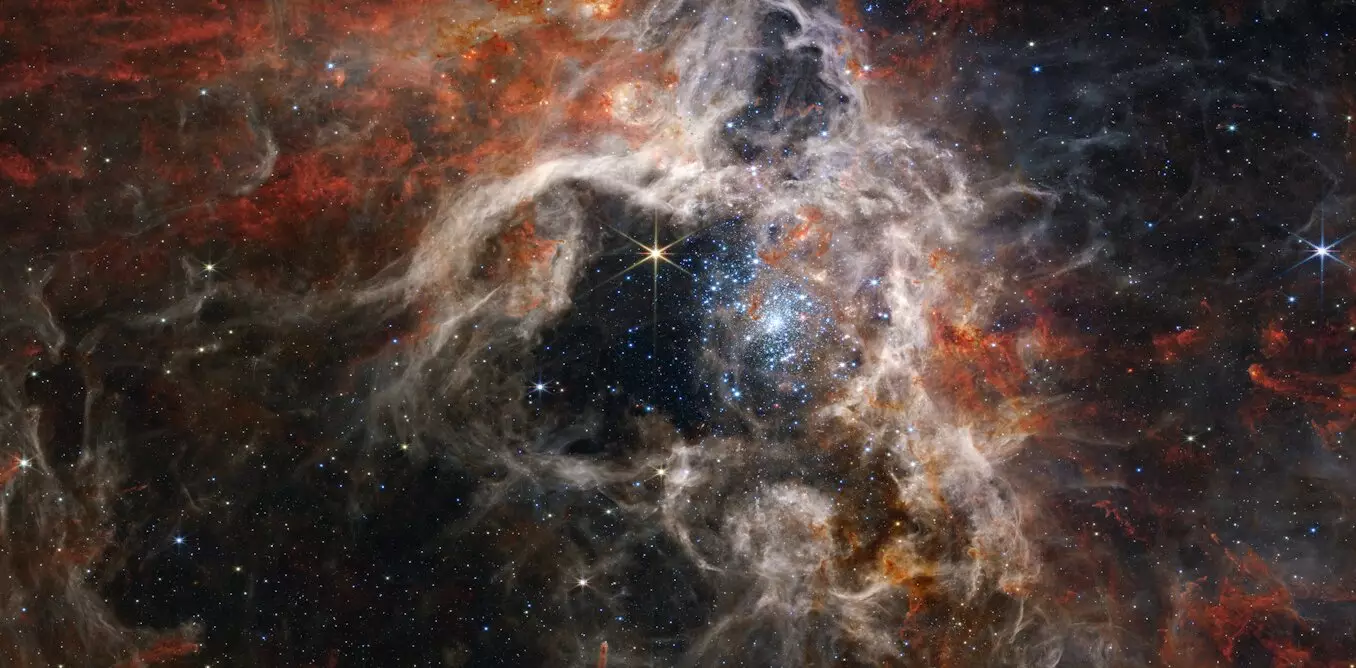On the surface, our universe appears to be a bastion of stability, an awe-inspiring entity that has withstood the test of 13.7 billion years of existence. However, this façade may disguise a precarious truth: the universe could be teetering on the brink of instability due to the enigmatic Higgs boson. Recent research posits that while we marvel at the vastness of existence, we might be overlooking the foundational elements that could unravel it all. Could it be that the very particle responsible for the mass of everything we know might also herald our doom?
In a groundbreaking study accepted for publication in the esteemed journal *Physical Letters B*, scientists illustrate scenarios suggesting that primordial black holes formed shortly after the Big Bang could serve as catalysts for fundamental shifts in the Higgs field. These tiny black holes, if they ever existed, would influence the Higgs boson in ways that could jeopardize the cosmic balance, leading to a catastrophic phase transition, radically altering the laws of physics as we know them.
The Subtle Dynamics of the Higgs Field
The Higgs boson is much more than an abstract concept; it’s a cornerstone of the Standard Model of particle physics. It bestows mass upon elementary particles through its interaction with the Higgs field, a pervasive and uniform field that connects every corner of the universe, akin to a tranquil water surface. Yet, therein lies a fundamental issue: the Higgs field may not reside in its most stable state. The possibility of the Higgs boson transitioning to a lower energy state presents a tantalizing, if alarming, proposition.
If such a transition were to occur, the consequences would be staggering. Just as water can boil and vaporize, disrupting its state, the Higgs field could create low-energy bubbles of space that would precipitate a radical reconfiguration of particle interactions and essential forces. Such a stark metamorphosis would render our concept of reality moot, as elementary particles like electrons would behave differently, throwing the fabric of our universe into disarray.
The Role of Primordial Black Holes
Delving deeper into this cosmic conundrum, the research highlights the role of primordial black holes—massive vacuum structures that might have emerged due to the intense conditions of the early universe. While conventional black holes form from stellar collapse, these primordial counterparts could be minuscule, potentially as light as a gram. If they existed, they would have evaporated by now due to Hawking radiation, a fascinating phenomenon predicted by the legendary Stephen Hawking.
Thermodynamics dictates that these small black holes would pulsate with energy, behaving like dynamic heat sources within the cosmos. As they dissipate, they may create localized hot spots, which could influence nearby Higgs fields. These phenomena, if unchecked, inject an element of unpredictability that casts doubts upon existing models of cosmic evolution and fine-tunes the nature of reality itself.
The Metastable Universe: A Comforting Lie?
Scientific discourse has understandably categorized the universe’s state as “meta-stable.” This phrasing serves as a balm against cosmic fears, suggesting the end is not upon us—at least not soon. However, when we consider the variables at play, the idea that our reality is merely a comfortable myth becomes increasingly plausible. The Higgs field remains a mystery not entirely understood, and with new data from cutting-edge facilities like the Large Hadron Collider, we are pushed to reconsider the speculative nature of our observations.
It is essential to recognize that the instability implied is not imminent, as current conditions are so finely balanced that the likelihood of an immediate transition is minuscule. Nevertheless, the idea that primordial black holes might have been a once-serious possibility in our early universe hints at a forgotten dynamic region that could still harbor secrets regarding the nature of matter and energy.
What Lies Ahead: Uncharted Waters in Physics
Our pursuit of knowledge about primordial black holes is an exciting venture that may invite new theories, unknown particles, or unexpected forces. Should evidence of these ancient structures ever materialize, it may reshuffle our understanding of the Higgs boson and its interactions. Scientists must remain vigilant in their studies, ready to unlock the secrets still concealed in the universe’s depths.
The journey into the realm of the Higgs boson and its potential consequences on cosmic stability serves as a reminder of the delicate threads binding our understanding of existence. It enjoins us to build upon our frameworks of knowledge with courage, for there may be vast horizons of cosmic physics yet to explore. As we navigate this enigmatic landscape, it is clear that the universe, with all its mysteries, remains a treasure trove of intrigue and discovery.

